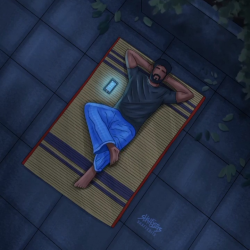

Living in a "fake world" is a subjective term that might mean different things to different people. It could be a reference to several facets of society or personal experiences. But demonstrating that we are living in a fake world is difficult since it relies on one's viewpoint, convictions, and interpretation of what a "fake" world is.
The following are some arguments that some may use to support their claim that we live in a "fake world," albeit they may not be embraced by everyone or serve as proof:
1.Artificiality in Social Interactions: According to some, superficiality and artificiality in social interactions are encouraged in today's society. They contend that appearances, social standing, and financial belongings frequently take precedence over sincere relationships and sincerity.
2.Media Manipulation: Opponents claim that skewed stories, sensationalism, and false information are encouraged by mainstream media. They argue that media outlets could present a skewed picture of reality by putting profit and political agendas ahead of impartial reporting.
3.Consumer Culture: Opponents of consumer culture contend that it pushes people to look for happiness and fulfillment in material goods and outside approval. They contend that unattainable ideals of pleasure, success, and beauty are fostered by marketing and advertising, which leaves people feeling inadequate and unsatisfied.
4.Technology and Virtual Reality: Some contend that the development of virtual environments that conflate fact and fiction is a result of technological breakthroughs, especially in the areas of social media and virtual reality. They contend that an over-reliance on technology might cause a person to become cut off from connections and real-world experiences.
5.Philosophical and Existential Arguments: The nature of reality and the potential of existing in a virtual or illusory world have long been topics of discussion among existentialists and philosophers. Ideas like Descartes' Evil Demon hypothesis and Plato's Allegory of the Cave cast doubt on the veracity of sensory perception and the nature of truth.
These observations may strike a chord with certain people and highlight some characteristics of modern culture, but they are not always evidence that we are living in a "fake world." Reality perceptions are subjective and shaped by personal experiences, convictions, and interpretations. What one person views as artificial or false, another person may find to be real or true. Ultimately, our perception of reality depends on our own perspectives and the depth of our philosophical research.
Living in a "fake world" is a subjective concept that is frequently supported more by philosophical or personal convictions than by actual evidence. On the other hand, some contend that the widespread use of artificial intelligence, social media, and manipulative media might lead to a distortion of reality or a sense of unreality. However, judgment rather than hard data determines if this amounts to a "fake world".
But it's difficult to provide conclusive evidence that we live in a "fake world" because our perceptions and experiences color the reality we perceive. Philosophical writings like Descartes' "Meditations on First Philosophy" or talks about the nature of reality in Plato's allegory of the cave may offer intriguing viewpoints if you're interested in delving deeper into this idea.
1.Skepticism: The validity of our senses and perceptions is questioned by philosophical skepticism. It implies that we cannot always be sure that our experiences accurately reflect reality since our senses can occasionally trick us.
2.Simulation Hypothesis: According to this theory, our world is essentially a computer simulation that resembles a virtual reality game. Proponents contend that technological advancements make the possibility that a highly developed civilization could produce such a simulation more and more likely.
3.Brain in a Vat: According to this thought experiment, all of our sensations are artificially created since our brains are linked to a computer that mimics reality. It calls into question the idea that we can ever really know if our experiences are consistent with the outside world.
4.The philosophical stance that only one's own thought is certain to exist is known as solipsism. From this vantage point, everything that is not inside one's own head, such as other people and the outer environment, may be viewed as perhaps “fake.”.
Though these ideas present fascinating avenues for questioning what we perceive to be true, it's crucial to remember that they are still theoretical and devoid of empirical support. They therefore function more as intellectual exercises than as unquestionable evidence that we live in a “fake world.”




